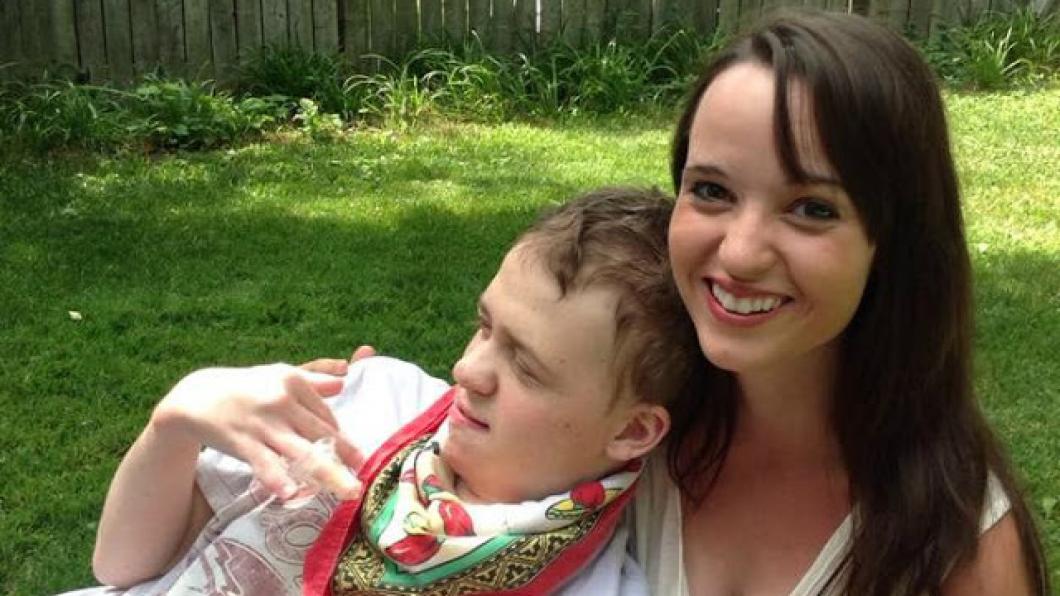
Love speaks louder
By Emma Ockerman
I've had this conversation 50 times already. I stand on my front porch as my hand just brushes the brass-plated door knob and I turn to speak to a new friend who waits to enter my abode.
It could be called a warning, even.
"Listen," I say gingerly, as if I'm telling them their cat has passed. "Before you come in my house, you should probably know about my brother..."
They nod. They have heard from others before, and their nonchalance allows me to believe that their entrance into my house will be the breakthrough of normalcy I've never had with a friendly introduction.
But then I open the door.
My 15-year-old brother Tristan tends to be a recluse from society in his room, but he always takes the chance to meet me by the door when a new friend is being introduced. One hundred and twenty pounds of ignorant joy in an adult diaper, he holds a red ribbon and a "sippy" that supplies his liquid diet. Tristan's bib is fashioned out of a bandana that gives him a slightly ridiculous cowboy affability.
But he can't help it. I have never expected him to be anything but himself.
Tristan is severely autistic, but it doesn't really cross my mind until a new friend is standing beside me, their eyes shifting from my brother, to the floor, to me.
"What do I do?!" they silently plea and I would tell them if my brother wasn't already staggering towards them—hand outstretched, wet with drool.
"Hi there!" they say, falsely chipper. But Tristan is mute, so he drags them to whatever location in the house he sees fit at the time.
Tristan makes the rules to which everyone must follow.
He drags anyone who obliges to his small red cooler beside the kitchen sink, which holds his "sippies" containing a mixture of Ensure and Lactaid. Tristan coaxes them to open it and give him something to drink.
Anyone who has a heart, or essentially fears what he will do if they don't comply, plucks a "sippy" for Tristan and follows him to his room to enjoy The Little Mermaid on his monument of a television. It may not be polite on my brother's part, but he's not accustomed to his own company.
I am never looking at my brother at this point, but the house guest. My capacity to love a friend lies in their capacity to love my laughable, and maybe only in my eyes, adorable brother. My introductory speech doesn't lessen the shock in their eyes when they soak in Tristan's undeniably mentally challenged face.
But at this point, I have never had a friend deny the hand of my soon-to-be 16-year-old brother. To reject Tristan would not only be rejecting my friendship, but the friendship of a boy whose disorder has blessed him with the inability to hate anyone.
And they probably wouldn't want to face the wrath of me, his big sister, if they did.
Editor's note: About 16 or 17 years ago, I met Tristan and Emma in Michigan with their parents Jude and Steve. In addition to autism, Tristan has Langer-Giedion Syndrome, the same genetic deletion that my son Ben has. We had taken Ben to see a speech therapist in Michigan and had made contact with the Ockermans through a parent support group. All these years later, as Tristan turned 19, I heard from Steve. He told me about this story his daughter Emma wrote when she was in high school. She's now studying journalism at Ohio University. I particularly like the headline she chose.